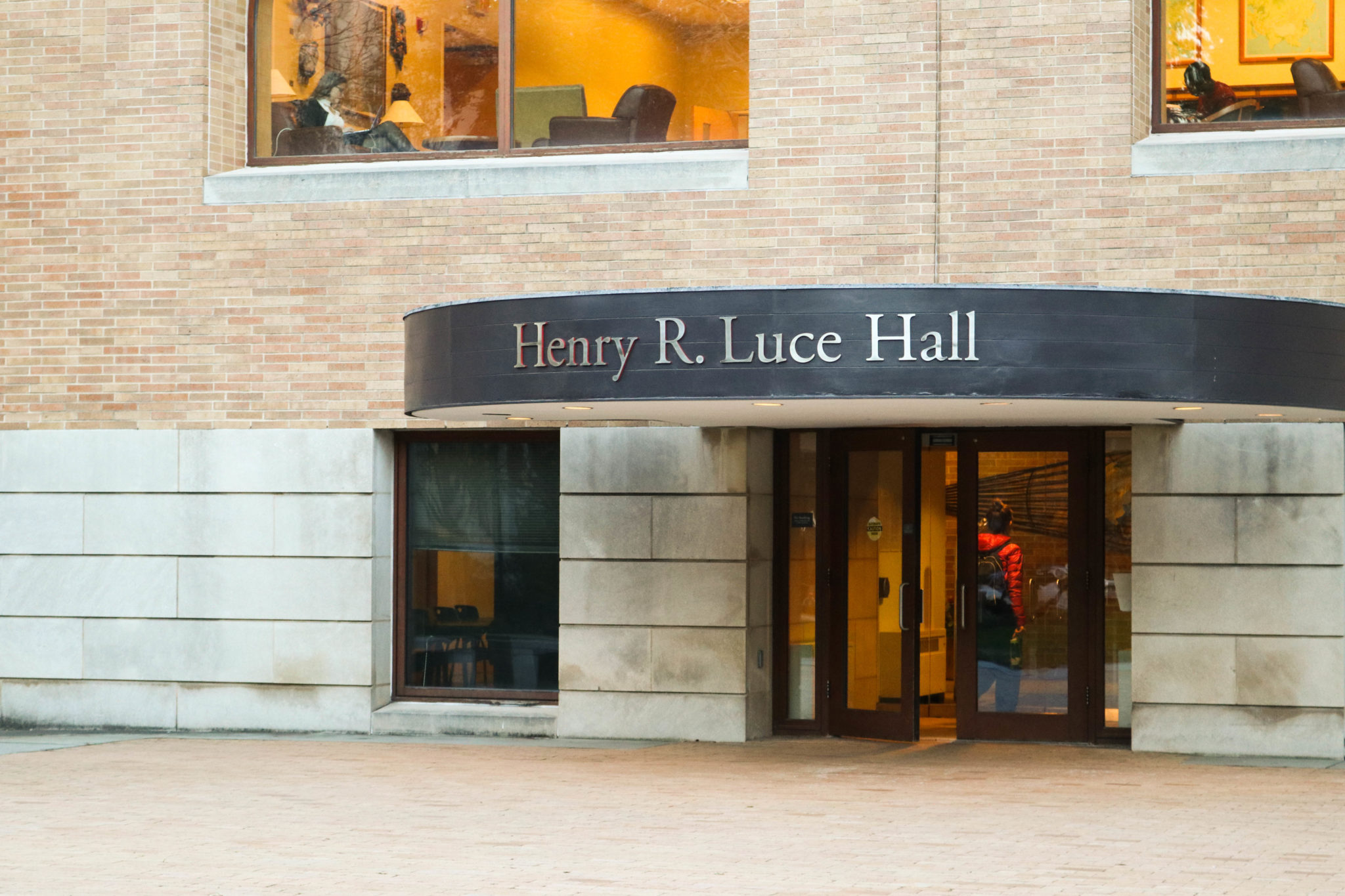
Dozens gathered in Luce Hall on Tuesday to hear from Daniel Gerlach, editor-in-chief of the German Middle East magazine Zenith, who spoke about sectarianism, a war of narratives and the ongoing Syrian Civil War.
The event, which included a lecture and a question and answer session, covered the sectarian element of the Syrian conflict. Gerlach’s book argues that the Syrian Civil War is a conflict between religious groups in Syria exacerbated by the Assad administration, the authoritarian regime currently ruling Syria. The regime led a program campaign to increase tensions between the country’s two predominant Muslim groups, the Sunni majority and the Alawite minority, against each other in an effort to maintain its own power. At the event, moderated by professor of religious studies Frank Griffel, Gerlach discussed how the conflict prompted the Alawite minority to rally around the Assad regime as relations with the Sunni majority deteriorated.
“It’s an attempt to change the demography of the country and destroy the sectarian balance of the country,” Gerlach said.
The conflict began in Palmyra, an ancient city in Syria. To outsiders, it may seem beautiful, but the city has “different connotations for Syrians,” Gerlach said. On June 27, 1980, the Assad regime carried out a collective massacre, killing anybody deemed a member of a terrorist group. The number of victims was disputed, but some critics claimed that the death toll ranged from 1,000 to 1,200. Members of the Alawite community, to which Assad and members of his regime belong, led the attack.
But many of those killed were not proven to be a part of terrorist groups, Gerlach said, adding that claims from the Assad regime were just another form of propaganda. Those who were targeted were primarily members of the Sunni majority. The government’s use of propaganda propagated the conflict between the two groups, Griffel said.
Neither group understands that the government is promoting the conflict, so both have a different understanding of why the two groups are in conflict, Gerlach said.
“[Daniel] is also talking about how the different parties frame the conflict and how they see it today,” Griffel said. “Our point of view is that it’s important to understand the Assad regime’s point of view, the prominent party.”
In 2011, the Siege of Hama marked the start of the Civil War, as the Sunni majority revolted against the Assad regime. During the conflict, flyers circulated with the phrase “Don’t follow the media of fitnah,” an Arabic word with extensive connotations of distress. Fitnah has strong historical implications and is widely used in modern Arabic to describe acts of terrorism in the name of Islam. The flyers urged people to embrace the unity of Islam and fight back against divisions within the community.
The Assad regime publicly stated that the Sunni majority was not uprising against the government but rather against the Alawite minority, targeting that message around the Alawite community.
At the same time, torture videos were posted on social media that depicted Alawite officers mistreating Sunnis. Gerlach told the audience that he suspected that this too was the work of the government, given the large quantity of videos posted online. While generating hate against its own people may seem strange, Gerlach explained that the Assad regime was working to ensure that the Alawite community was hated as much as possible so they would never revolt against the Assad regime, which promised to protect them.
He added that, in Syria, the Alawite people do not get along with the Sunnis. But Gerlach was worried about this narrative.
“If the population of Syria buys into this narrative, the country is lost forever,” he said.
But the strife between the two groups is just one layer to the conflict, Gerlach said. He claimed that, if he were to give the lecture in another country, such as Germany, he would receive criticism from those who claimed he was painting a caricature of the conflict. There are many people in Europe who are Syrian refugees or know people who are, he added.
“In Europe, [it’s] a pretty different story because when you talk about these issues you’re automatically interacting with many people from the region,” he said. “I like the openness of the discourse. There is sometimes much less prejudice about concepts and ideas than there would have been in Germany.”
Griffel also highlighted that many Americans lack knowledge regarding the Syrian Civil War. He hoped the event would prompt people to think more about the ongoing conflict.
In an interview with the News, graduate student Salma Almidani SPH ’20 said she did not believe that Gerlach’s remarks were slanted, adding that he brought a new perspective to solutions to the conflict.
“I thought it was super informed,” she said. “I didn’t think it was biased at all. I feel like he addressed a lot of key points. He was one of the first people that I ever heard talk about changing the geographic makeup of Syria.”
Zenith, the magazine Gerlach leads, was founded in 1999.
Kelly Wei | kelly.wei@yale.edu .







